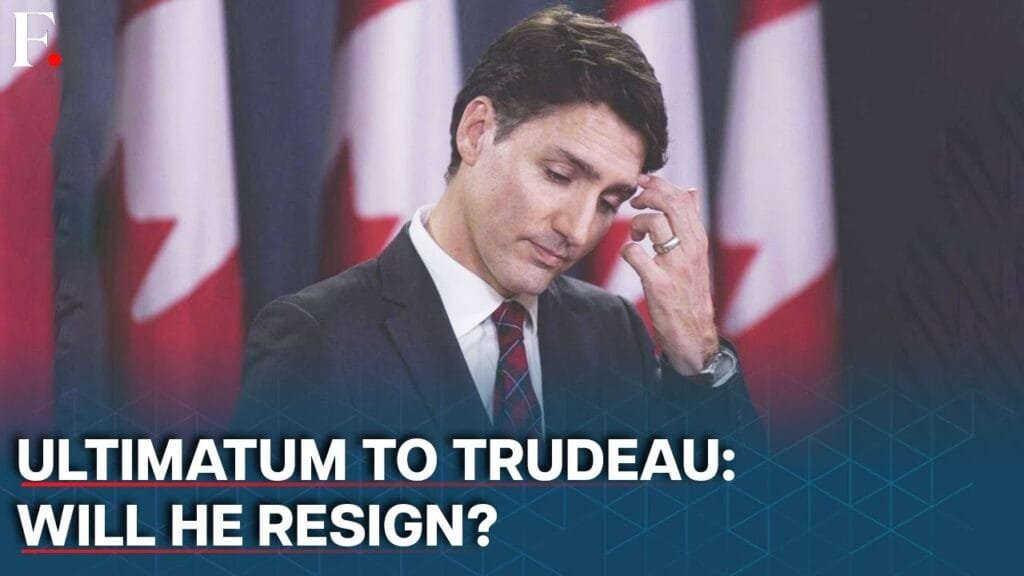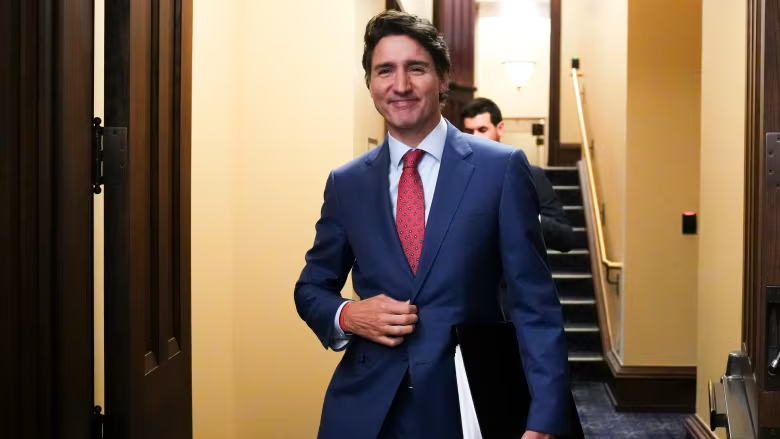Key Highlights:
A stinging internal storm is battering Canadian Prime Minister Justin Trudeau from the inside, as mounting pressure from members of his own Liberal Party forces him out. As per recent reports, many liberal MPs have questioned whether the prime minister is fit enough to lead the party into the next federal election, while others have issued ultimatums asking for his stepping down. This internal uprising comes in the wake of dwindling opinion polls, election reverses, and growing dissatisfaction on the part of Canadians at the situation the country finds itself in.
Increasing Domestic Unrest
When Liberal MP Sean Casey came out publicly saying that the prime minister should step down because of deep dissatisfaction felt both in party ranks and among voters, an ultimatum that forces Trudeau out went public. Several other MPs support Casey; a new leadership is required if Liberals want to avoid a devastating defeat in the next federal election.

According to him, frustration in the party has built up, and both MPs and constituents have lost faith in Trudeau’s ability to handle the continued political and economic crises that face Canada. “The message I’ve been getting loud and clear is that it’s time for him to go,” Casey said, reflecting a sentiment that appears to be shared by a major faction within the party.
Electoral Setbacks and Declining Poll Numbers
It is partly for this reason that the Liberals, having for years been a pretty strong source of support, were subjected to a string of electoral reverses at their traditional bastions, Montreal and Toronto. Recent by-elections had seen Liberals lose seats to opposing parties, the Bloc Québécois and the Conservative Party, in bigger margins than expected. These reverses sent down various alarm signals about the party’s prospects for the next general election scheduled for 2025.

Approval ratings for Trudeau have plummeted by 35 points from a peak of 63% when he first became head, down to 28-33% in recent polls. These have been attributed to rising costs of living-the cost of housing in particular-and to a perceived disconnect from the daily lives of ordinary Canadians.
Party Dissatisfaction and High-Profile Resignations
Another plane of suffering for Trudeau is reflected in the resignation of several ministers, which are actually internal factions. Several of the most public ministers have resigned or declared they will not run in the next election. Many perceive this as an indication that the party is not satisfied with the current leadership. The resignation from the cabinet has made calls for him to resign much more urgent for Trudeau.
One of the dramatic moments of this internal uprising happened at the caucus meeting where 24 MPs of Liberals signed a letter urging the Prime Minister to step aside for the good of the party. That letter is said to be at the brink of the current discussions held on leadership with many MPs reportedly supporting the notion of a new leader at the helm of direction to lead the party to the next election.
Impact of the India-Canada Diplomatic Row
Fallout with Trudeau’s leadership has also emanated from diplomatic row handling in the international relations by Trudeau, especially on how he handled the Indian-Canada diplomatic row recently. The anti-Trudeau forces are riled by the prime minister’s charges that India was involved in the killing of Khalistani separatist Saran Singh Gill, accusing him of politicking using the incident. While the party has publicly endorsed the prime minister’s position on this issue, political analysts say that he has further compounded the problem from inside.
The Future Ahead: What is in Store for Trudeau?
This growing rebellion within the party raises questions as to who would come in as Trudeau’s replacement. A few people have come up as potential candidates, although no one has stepped forward that even looks like a clear front-runner. Former British Columbia Premier Christy Clark is interested in being included in a discussion on the future of the party if Trudeau is stepping down.
Trudeau has remained unchanged in his resolve of not quitting, so far. He further reiterated his promises, assuring the public that he is willing to continue to lead the Liberals, guiding the country at this most crucial juncture. But at what point of internal dissent and popular decline should this prime minister draw a line and not stay there?
Conclusion
Justin Trudeau’s future as Canada’s prime minister is now being weighed in the balance as internal pressure from his party mounts. With a disillusioned electorate, declining poll numbers, and a series of high-profile resignations, an internal revolt within the Liberal Party might be the final pressure that topples the person who became Canada’s prime minister in the first place. In the coming weeks, Trudeau will be facing a challenge in power possession as his party seeks election to the most critical general vote in 2025, after which many are questioning whether this might be the last straw in his leadership of the Liberal Party and possibly even as the prime minister of Canada.
For Latest News Updates Click Here
